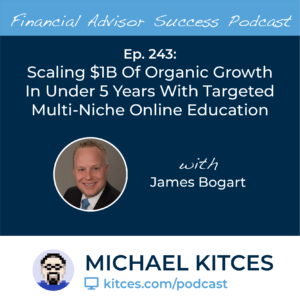From the moment they were introduced nearly 25 years ago in the Taxpayer Relief Act of 1997, the Roth IRA has been an incredibly popular retirement vehicle, thanks to its ‘unlimited’ potential for generating tax-free growth. Of course, the caveat is that Roth-style accounts are only tax free because the contributions into the account are made on an after-tax basis – unlike traditional retirement accounts, which enjoy a tax deduction on the initial contribution. Which means in practice, households must make a decision whether to contribute to a pre-tax traditional IRA or a tax-free Roth, based on whether the upfront tax deduction (on the traditional IRA contribution) will be more or less valuable than tax-free growth at the end (on the Roth IRA distribution).
Mathematically, the Roth-versus-traditional IRA decision will actually be the same, regardless of growth rates and time horizon, as long as both accounts remain intact and tax rates don’t change. If future tax rates do change, though, the Roth IRA will result in more wealth when tax rates rise in the future, while the traditional IRA will benefit when tax rates are lower in the future. Though in practice, because the tax burden for a Roth IRA is paid upfront – when the (after-tax) contribution is made – there is no future uncertainty with respect to its future tax rate; instead, changes in tax rates primarily impact the future value of a traditional IRA, in particular, making it better or worse off depending on whether or how tax rates change.
To cope with this uncertainty, one popular approach is to ‘tax-diversify’ between the two types of accounts, splitting contributions between traditional and Roth IRAs so that there is at least ‘some’ benefit regardless of which direction tax rates go (as higher tax rates benefit the portion of dollars in the Roth, and lower tax rates would benefit the traditional IRA dollars instead). However, the reality is that splitting dollars between traditional and Roth retirement accounts isn’t just a form of diversification; because the outcomes are correlated to each other (as a change in tax rates that benefits one type of account adversely impacts the other type by the same amount), the net result is that tax diversification doesn’t actually diversify the risk, it simply neutralizes the opportunity altogether. Or viewed another way, splitting between traditional and Roth IRAs is not akin to the diversification of owning different types of stocks; it’s more akin to just bailing out of stocks altogether and owning zero-return cash.
So what’s the alternative? Instead of trying to tax-diversify between traditional and Roth retirement accounts, taxpayers can consider trying to ‘Roth optimize’ exactly when to add dollars to tax-free Roth accounts. After all, a household’s tax rates typically vary throughout life – often by a wide range as careers start and stop and change, family and health needs impact our time in the workforce and what we earn, businesses are started and subsequently fail or succeed, and eventually retirement comes (with its own tax complications of Social Security benefits and Required Minimum Distributions). Which means there will be years where a household can ‘time’ its tax situation, by contributing to traditional IRAs in years when income and tax rates are high, and tactically switching to Roth contributions (or even engaging in Roth conversions) when tax rates are unusually low.
Of course, there’s always a risk that tax rates will change in the future, not because of the household’s change in income, wealth, or circumstances, but simply because Congress itself ‘changes the rules’ by altering tax rates. Although, in reality, while tax brackets have varied significantly throughout history, tax deductions have often changed alongside the brackets, such that changes in effective tax rates have actually been remarkably narrow throughout history. In other words, the variability of tax rates due to Congress (which we can’t control) is actually dwarfed by changes in tax rates within the household over time (which can be planned for!).
Ultimately, though, the key point is simply to understand that arbitrarily splitting dollars between traditional and Roth-style retirement accounts isn’t actually a positive wealth-creating strategy; instead, it is more akin to ‘going to cash’ and eliminating the opportunity altogether. For those who want to actually maximize wealth with the traditional-vs-Roth decision, the better approach is to try to Roth-optimize by timing when to shift between traditional and Roth accounts. Which, in practice, is easier than most realize, as while a household’s future is never certain, the Roth-vs-traditional decision has the most impact in years that are especially high or low in income… which are actually the years that are most easy to identify in the moment for a Roth optimization timing decision!

 Welcome back to the 243rd episode of the Financial Advisor Success Podcast!
Welcome back to the 243rd episode of the Financial Advisor Success Podcast! Welcome back to the 242nd episode of the Financial Advisor Success Podcast!
Welcome back to the 242nd episode of the Financial Advisor Success Podcast!
